Container trailers are a vital component of the logistics and transportation industry, specifically designed to carry standardized cargo containers. As globalization expands trade routes across the world, the demand for efficient and secure transport solutions has surged. This comprehensive guide aims to clarify what container trailers are, how they function, and the various types available, thereby addressing critical user queries regarding their functionality and applications.
1. Definition of a Container Trailer
A container trailer is a specialized type of trailer designed to transport intermodal cargo containers, which are robust and standardized shipping containers capable of being transferred across different modes of transport with minimal cargo handling. These trailers are essential for streamlining the supply chain, allowing for seamless transitions between ships, trains, and trucks.
Key Features of Container Trailers
- Built for Intermodal Transportation: Container trailers are designed to be compatible with various transport modes, including rail and sea transport.
- Sturdy Construction: Made of high-strength materials, they can withstand the rigors of transportation and environmental factors.
- Customizable: Many trailers allow for various container sizes, typically 20-foot or 40-foot containers.
- Safety Features: They often come equipped with features like secure locking systems and anti-theft technology.
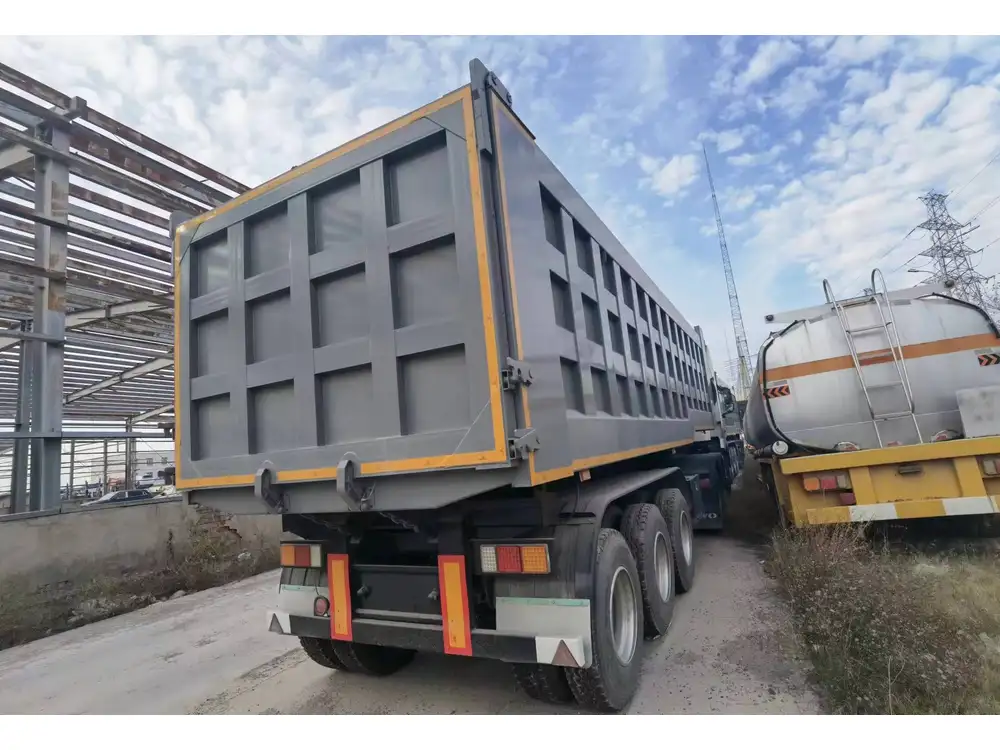
2. Types of Container Trailers
Container trailers come in various designs, each catering to different transport needs and cargo types. Understanding these types can help businesses optimize their logistics processes.
2.1 Flatbed Container Trailers
Flatbed trailers possess a level platform without sides or a roof, providing flexibility in loading and unloading. This versatility makes them ideal for transporting oversized equipment or machinery in addition to standard containers.
2.2 Skeletal Trailers
Skeletal trailers comprise a frame with no sides or top, specifically designed for carrying one or more containers. They can accommodate a variety of container types and sizes, making them a popular choice in containerized shipping. Skeletal trailers often include twist locks to secure containers during transit.
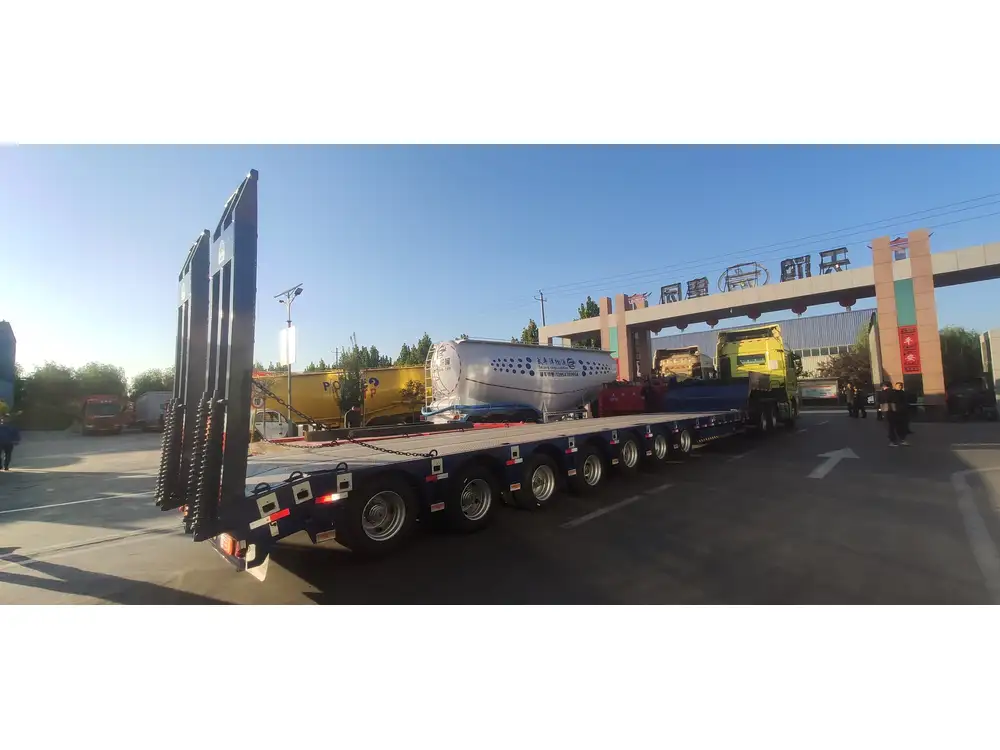
2.3 Tilt Trailers
Tilt trailers feature mechanisms that allow the trailer to incline at an angle, facilitating easier loading and unloading of containers or heavy cargo. These trailers are especially beneficial in scenarios where what is being transported needs to be discharged via ramp systems.
2.4 Double-Stack Trailers
Optimizing space is crucial in shipping; double-stack trailers allow two containers to be stacked on top of one another. This innovative design is primarily used for rail transport but has made its way into road transport as larger trucks are authorized to carry freight efficiently.
2.5 Refrigerated Container Trailers
These trailers, equipped with temperature control systems, are essential for transporting perishable goods. Refrigerated container trailers maintain consistent internal temperatures during transit, making them indispensable in food transportation.

3. Understanding Specifications
When selecting a container trailer, it’s important to consider several specifications that determine suitability for specific applications.
3.1 Load Capacity
Load capacity refers to the maximum weight a trailer can carry, which varies based on size and construction. Common capacities range from 30,000 lbs to over 60,000 lbs.
| Trailer Type | Typical Load Capacity |
|---|---|
| Flatbed | Up to 40,000 lbs |
| Skeletal | Up to 60,000 lbs |
| Tilt | Up to 50,000 lbs |
| Double-Stack | Varies based on design |
| Refrigerated | Up to 45,000 lbs |
3.2 Dimensions
The dimensions of container trailers can vary widely based on the trailer type and the containers they are designed to carry:
- Length: Generally, 20 to 40 feet.
- Width: Standard width is about 8.5 feet.
- Height: Standard height varies from 4.5 feet to 5.5 feet.
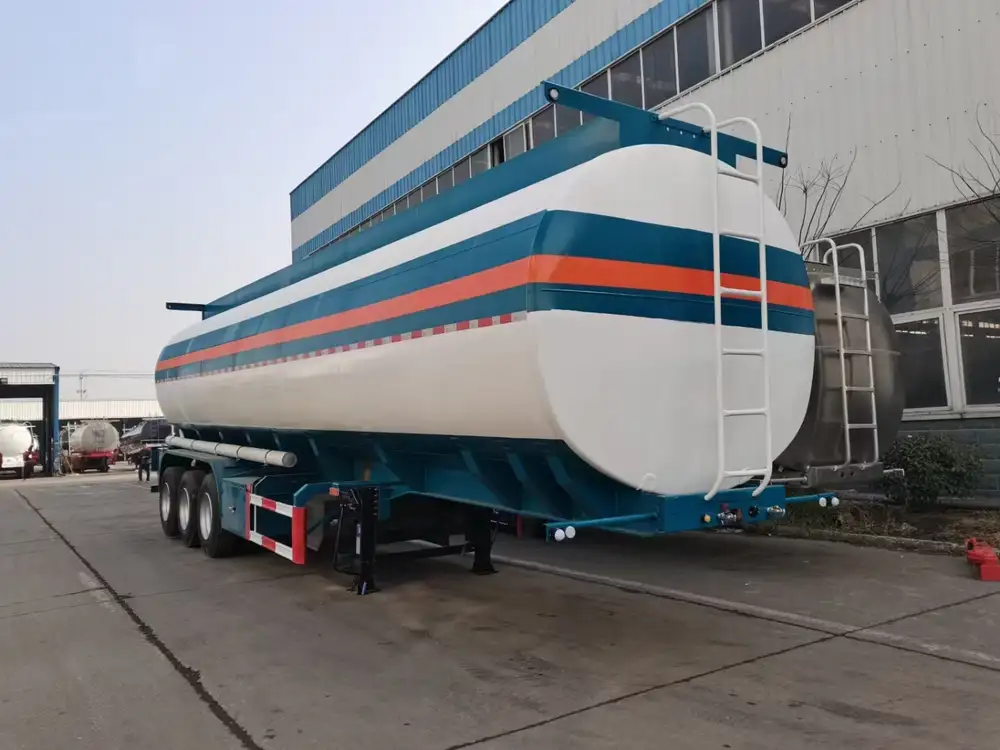
3.3 Coupling Mechanisms
The efficiency of a container trailer also relies on the coupling mechanisms used to attach it to a prime mover. Choose a coupling system that suits your operational requirements and gives reliable traction.
- Fifth Wheel Coupling: A popular choice for larger trailers owing to its effective weight distribution.
- Gooseneck Coupling: Typically found on smaller flatbeds, this type provides improved maneuverability.
4. Advantages of Using Container Trailers
The advantages of employing container trailers for cargo transportation are substantial, making them a preferred choice for manufacturers and logistics companies.
4.1 Efficiency
Container trailers facilitate efficient loading and unloading processes, minimizing turnaround times and maximizing productivity in the supply chain.
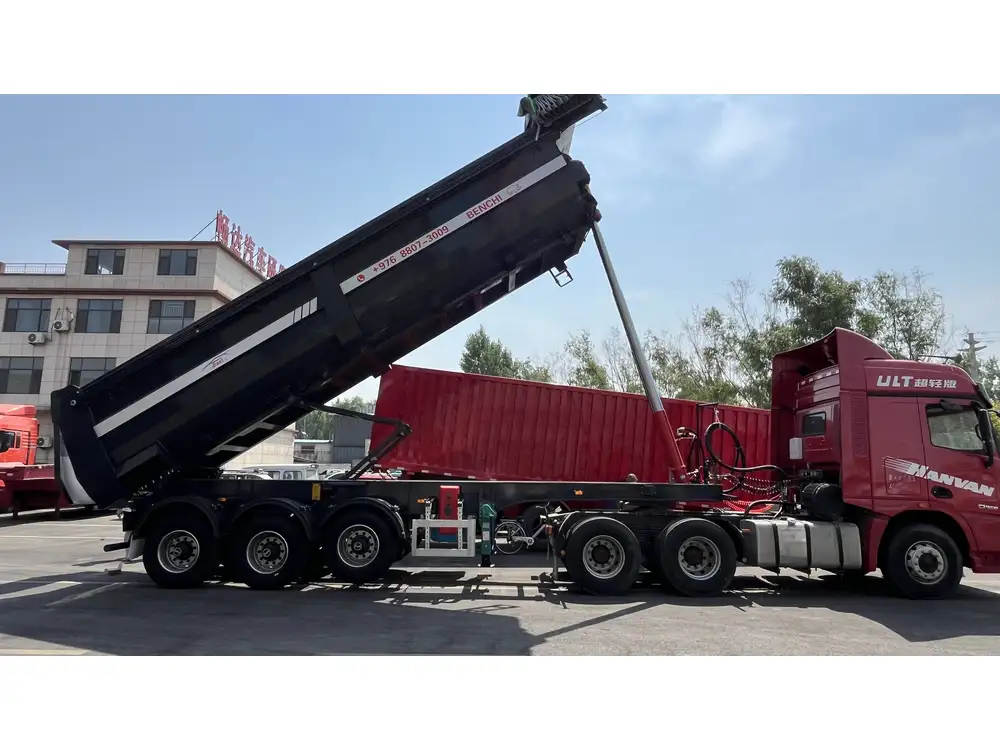
4.2 Flexibility
Since container trailers are designed for intermodal transport, they offer the flexibility of switching between road, rail, and sea transport modes without reloading the cargo.
4.3 Security
When transporting valuable goods, security is paramount. Container trailers come with advanced locking systems to ensure the safety of the cargo during transit.
4.4 Cost-effectiveness
Utilizing container trailers can lower overall transportation costs. They optimize logistics routes, minimize handling and reduce the risk of cargo damage, leading to lower insurance costs and fewer losses.

5. Common Applications of Container Trailers
Container trailers are prevalent in diverse industries, reflecting their critical role in modern transportation logistics.
5.1 Retail and E-Commerce
With the growth of online shopping, container trailers are vital for transporting goods from distribution centers to retailers, ensuring prompt delivery.
5.2 Agricultural Products
Refrigerated container trailers specifically cater to the agricultural sector by providing the necessary conditions to preserve perishables during long-distance transport.

5.3 Automotive Industry
Container trailers are extensively used to transport automotive parts and finished vehicles, allowing manufacturers to maintain efficient supply chains.
5.4 Construction
Flatbed and tilt trailers are commonly used in the construction industry to transport building materials, machinery, and heavy equipment.
6. Choosing the Right Container Trailer
Selecting the right container trailer for your business requires careful consideration of various factors. Here, we dissect the essential aspects to consider.
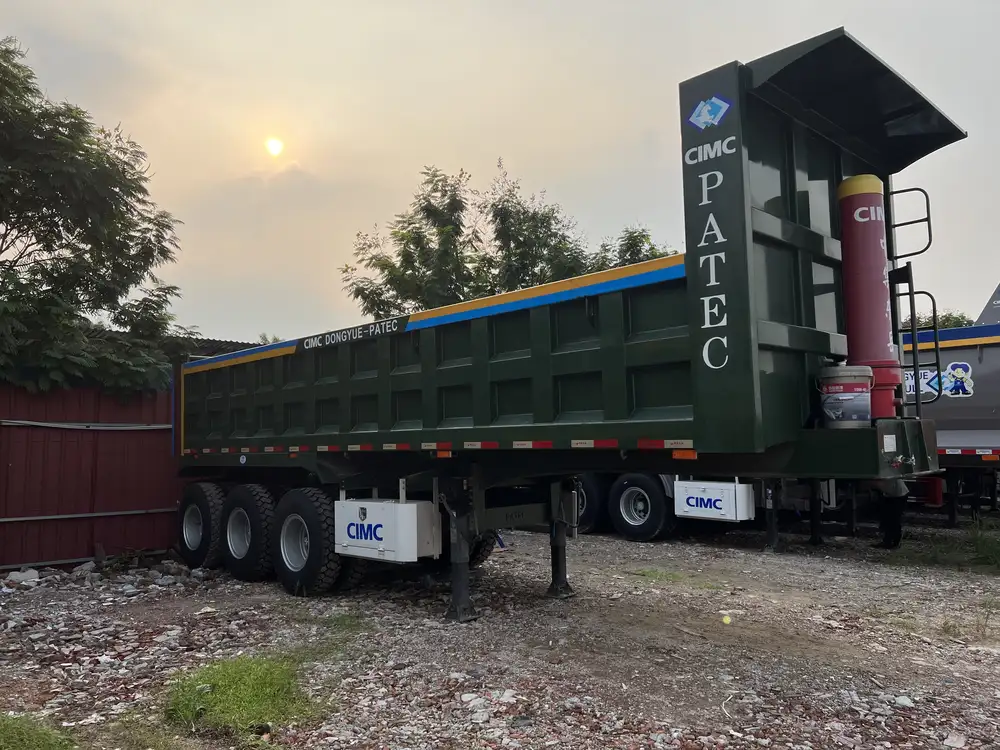
6.1 Determine Cargo Type
Identifying the nature of goods being transported will guide you in choosing the most appropriate trailer type. Heavier, bulk items may require skeletal or flatbed options, while perishables call for refrigerated trailers.
6.2 Analyze Load Requirements
Understand your typical load requirements in terms of weight and volume to ensure you select a trailer that can efficiently handle your cargo without compromising safety.
6.3 Consider Route Conditions
Evaluate the routes your trailers will frequently traverse. Off-road conditions may require more robust trailers equipped with additional features for durability.

6.4 Cost vs. Features
While advanced features may come at a higher cost, balancing your budget with the benefits of these features is critical for long-term operational efficiency.
7. Maintenance and Care for Container Trailers
To ensure a long service life and reliable performance from container trailers, regular maintenance is essential. Here are maintenance tips to keep in mind:
7.1 Regular Inspections
Conduct thorough inspections to check for wear and tear, focusing on parts like tires, brakes, and coupling systems. Early detection of issues can prevent costly repairs.

7.2 Cleanliness
Keep the trailer clean to prevent rust and corrosion, particularly for refrigerated trailers where hygiene is crucial to cargo quality.
7.3 Lubrication and Servicing
Regularly lubricate moving parts and service electronic systems to guarantee operational efficiency and longevity.
7.4 Training Drivers
Ensure that operators are trained to properly handle container trailers, focusing on safe loading, unloading, and hitching techniques.
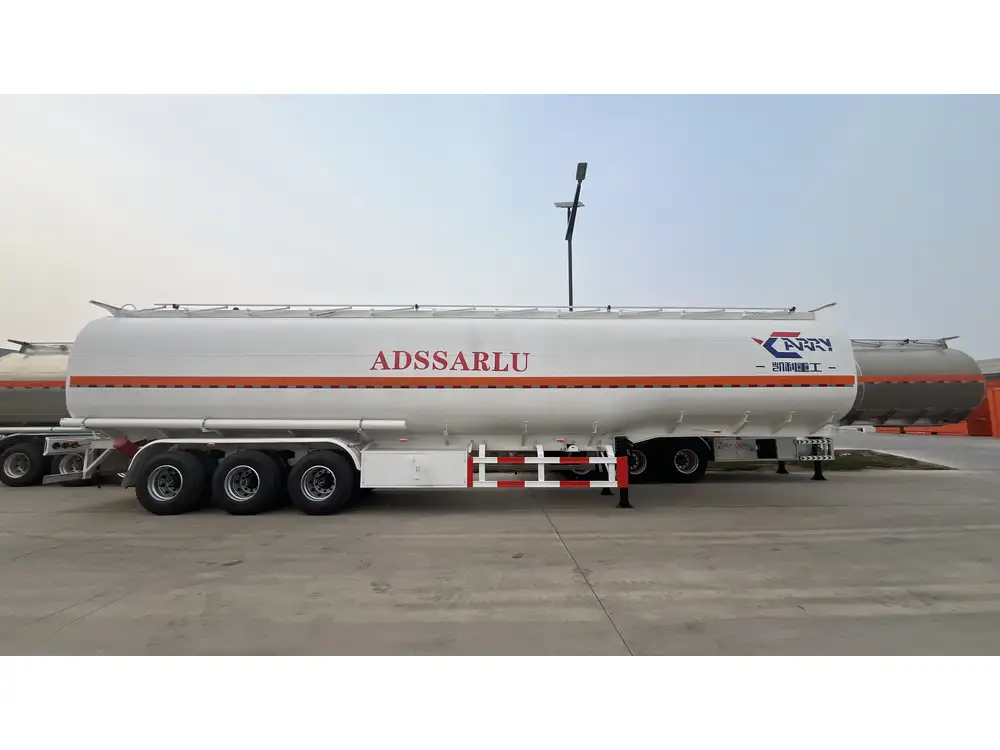
8. Future Trends in Container Trailers
As technology progresses, container trailers are evolving to meet new demands in logistics and transportation. Emerging trends include:
8.1 IoT Integration
The incorporation of Internet of Things (IoT) technologies enables real-time tracking of cargo conditions, enhancing security and efficiency.
8.2 Automation
Automated systems for loading and unloading cargo are being developed, offering increased efficiency and safety in operations.
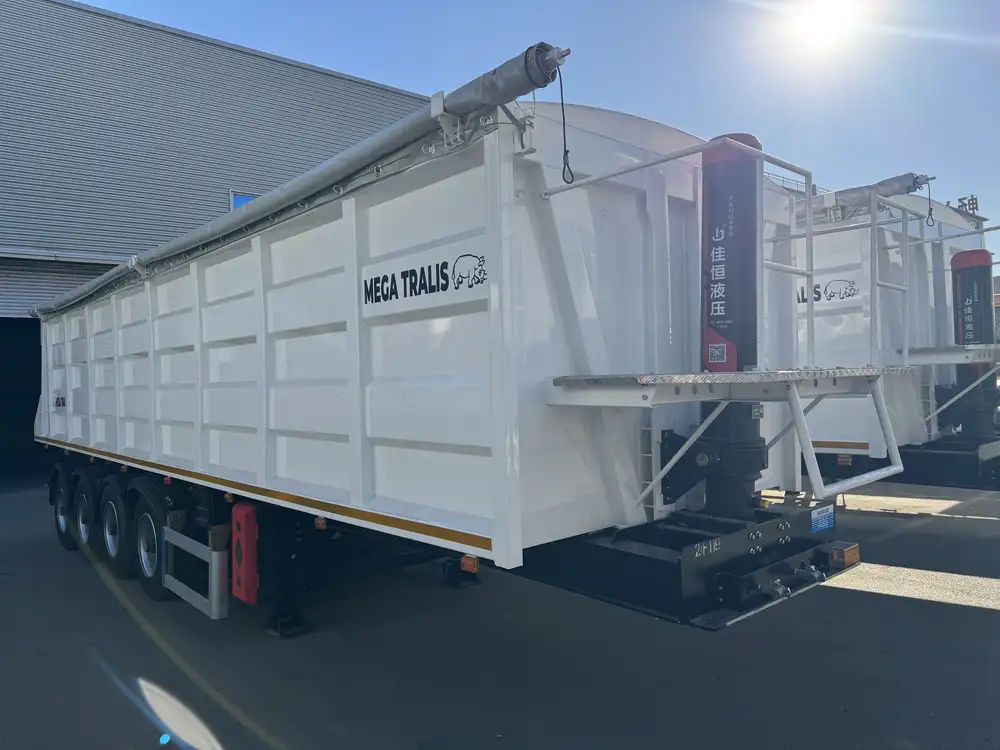
8.3 Eco-Friendly Materials
Research is underway to develop container trailers using sustainable materials, reducing their environmental impact.
Conclusion
In conclusion, understanding what container trailers are and how they function is crucial for businesses involved in logistics and transportation. They play an indispensable role in ensuring the efficient, safe, and cost-effective movement of goods across myriad transport modalities. By considering the various types, specifications, and applications of container trailers, businesses can make informed decisions that enhance their shipping processes, ultimately driving profitability and operational effectiveness.



